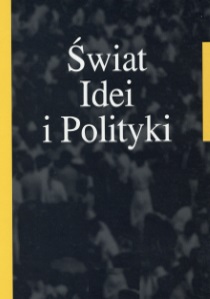Contemporary extremely nationalistic discourse on the example of the French National Front and the Dutch Party for Freedom
DOI:
https://doi.org/10.34767/SIIP.2015.14.04Keywords:
nationalism, euroscepticism, immigration, Front National, Party for Freedom.Abstract
The article describes and compares the two extremely na-tionalist groups which is: the French National Front, led by Marine Le Pen and the Dutch Freedom Party, founded by Geert Wilders. The pub-lication presented the key demands of the program and forms of action of this organizations. Subsequentliy comparative analysis of these two parties was conducted, which shows that the French formation evolves into softened public discourse, while the Dutch constantly radicalized their message. In the last part of the publication, it will be also outlined the political future of these groups, placed in the broader context of the functioning of the extreme nationalist organizations
References
Betz H.G., The new Front National: Still a master case?, „Recode” 2013, nr 30.
Bovekerk H., Prototypical fascism in contemporary Dutch politics, Tilburg 2011.
Clifton J., What’s in a name? Names, national identity, assimilation and the new racist discourse of Marine Le Pen, „Pragmatics” 2013, nr 23:3.
Crewson J., Geert Wilders and the Dutch Party for Freedom: A turn towards the centre?, Windsor 2014.
Delistraty C.C., Understanding the French Front National: immigration, unemployment, and priming, New York 2014.
Exposing the demagogues. Right-wing and national-populist parties in Europe, red. K. Grabow, F. Hartleb, Brussels 2013.
Gilia C., Frontul Național francez – surpriza alegerilor europene din 2014?, „Sfera Politicii” 2014, nr 3 (179).
Kalinowska K., Redivivus eurosceptycyzmu w Polsce – na przykładzie wybranych partii i ugrupowań politycznych, „Unia Europejska. Perspektywy Społeczno-Ekonomiczne” 2014, nr 6.
Kilar R., Francuski Front Narodowy, Kraków 2001.
Mietelski M., Poglądy gospodarcze europejskich ruchów nacjonalistycznych, „Polityka Narodowa” 2012, nr 12.
Moors H., Balogh L., van Donselaar J., de Graaf B., Polarisatie en radicalisering in Nederland. Een verkenning van de stand van zaken in 2009, Tilburg 2009.
Nowicki M., Pawlicki J., Skrajny Front Europy, „Newsweek” 2013, nr 43/13.
Pankowski R., Neofaszyzm w Europie Zachodniej, Warszawa 1998,
Populis rethoric: Front National, „Counterpoint European Parlament Election Briefi ng” 2014, nr 4.
PVV, Hún Brussel, óns Nederland. Verkiezingsprogramma 2012 – 2017, The Hague 2012.
Saint-Martin E., Profi le analysis. The Front National: model for the radical right?, Ottawa 2013.
Shields J., Marine Le Pen and the ‘New’ FN: A Change of Style or of Substance?, Parliamentary Aff airs 2013, nr 66 (1).
Van Donselaar J., Rodrigues P.R., Monitor Racisme & Extremisme, Amsterdam 2008.
Van Kessel S., Euro-enthusiasm, euro-rejection, and various shades of grey: The 2014 European Parliament election campaign in the Netherlands, „Commentary” 2014, nr 18.
Vossen K., Classifying Wilders: The ideological development of Geert Wilders and his Party of Freedom, „Politics” 2011, vol. 31 (3).
Williams M.H., A new era for French far right politics? Comparing the FN under two Le Pens, „Análise Social” 2011, Vol. XLVI (201).
Wilson R., Hainsworth P., Far right parties and discourse in Europe: A challenge for our times, Brussels 2012.

